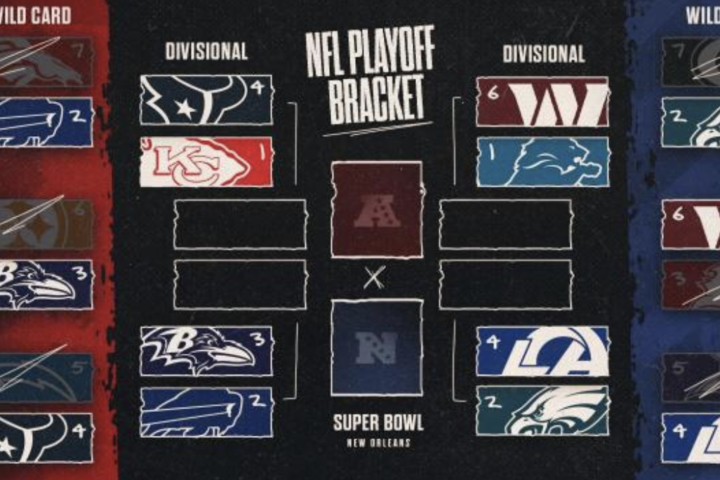It’s not every day that the news broadcasts pictures and videos of an armed mob breaking into the Capitol Building. Violence at the Capitol has occurred throughout its history, but the most memorable and largest actual attack comes from over 200 years ago when British forces took control of Washington D.C. during the War of 1812 and inflicted significant burn damage on the building’s interior. It may be obvious, but broadcast news did not exist in the 18th century. Other than that, most incidents of violence at the Capitol have been acts of individuals, whether they be enraged citizens or deranged congressmen. One of the most representative incidents of the sort of violence that the Capitol is accustomed to is the caning of Senator Charles Sumner, who was brutally attacked by pro-slavery Congressman Preston Brooks in 1856 after giving an anti-slavery speech. In February of 1861, a mob tried to break into the Capitol in protest of Lincoln, but they never made it inside.
This history and the advent of modern technology are what made January 6th so different. Political violence on the floor of the Senate and House is not new; it has occurred on a small interpersonal scale due to incitement of those within the legislative body, and it has occurred on a more destructive scale due to war and fringe radical groups. Never had the two mixed, never had violence occurred because a non-fringe group of politicians incited an angry mob, until January 6th. January 6th showed that the most dangerous and harmful violence against the legislative body of the United States is an issue of collective denial of democracy and incitement by our very own representative government.
Three years later, the story of how the January 6th Capitol Riot started and played out is scarily banal. It’s been talked about by all sides of the political spectrum ad nauseum, and for many, it has been subsumed into the general anti-Trump argument – the ultimate offense that served as a capstone to a presidency marred by controversy after controversy.
The problem with January 6th is that it did not happen in a vacuum. It’s easy to recognize that January 6th was a terrible moment, but it’s essential to put it into a wider context and examine its lingering effects on American politics and the Republican Party. The January 6th Capitol Riot may have happened three years ago, but in many ways, it is ongoing. With the combined power of media manipulation and authority, elected Republican officials have been able to cast doubt on elections in order to conserve power in a rapidly shifting political sphere.
Republicans have a strained relationship with voting and elections. Younger generations have continued to shift to the left, and as older generations age out and younger generations age into voter eligibility, this shift has become more and more pronounced. Trumpian accusations of voter fraud are not exactly a new phenomenon and have deep roots in the diminishing amount of popular Republican support.
Fieldston history teacher Dr. Banks believes that the Republican Party “ever since the Voting Rights Act [of 1965] was passed…has for years said that there was voter fraud. But it was not actually that widely believed. Study after study after study shows that there is minimal voter fraud, but if you actually look at every single election, nationally and otherwise, that a Democrat wins, very often there are Republican charges that there was voter fraud. Particularly since 2000 with the whole Bush v. Gore thing. I do think it has been a Republican tactic because they actually know the population supports Democratic policies and supports Democrats…The only way that Republicans now win presidential elections is through the electoral college, which is another reason why they don’t like the popular vote.”
This Republican fear of the popular vote is not unfounded; since the 1988 election of George H.W. Bush, the Republican Party has only won the popular vote once in 2004 with George W. Bush.
Rather than seeing January 6th as a singular event, it is essential it be viewed as the most extreme manifestation of what has actually become a core part of the Republican Party. Dr. Banks notes that “what has changed is that there was always a small group of people who would make those charges, but now the mainstream position within the Republican Party and among Republican voters is that there’s voter fraud and that elections are stolen…[Trump] has taken it to another level, and people have this strong attachment to him and whatever he says, and that influences what other Republicans are going to say.”
While Trump may have brought the idea of widespread voter fraud to a new extreme and used it to further his own goals, this rhetoric is really a symptom of the wider Republican Party desperate to maintain power.
A more subtle problem that January 6th has produced comes from media coverage. The Information Age and the extremely partisan nature of modern news have created an environment where the very way in which January 6th has been covered has made things worse. American politics are extremely sensationalized; go on TikTok right now and see clips of our representatives yelling at each other across the aisle, cut down into easily digestible bites for our viewing pleasure. From the fights to the dramatic interviews to the big posters, the spectator sport of American politics has become very exciting. Furthermore proving January 6th as a long-lasting and nourishing food for the media to cover.
Media on both sides has been constantly manipulated by 2020 election deniers and those who seek to revise the history of January 6th. Liberal media spent months and months dissecting every aspect of January 6th and rightly calling for consequences and justice, while conservative and alt-right media platformed misinformers and January 6th deniers and let them twist the narrative.
The over-coverage of the event and aftermath by liberal media provided fuel for Republicans and Trump supporters to use to discredit any January 6th backlash. Dr. Banks argues that “In the past, when things like this came out, people would say, ‘Well, wait a second’. Now I think they just believe what Trump says: that it’s a witch hunt, that it’s all politically motivated, none of it’s accurate, the judges are bought. You can’t really argue with people about that. It hasn’t moved the dial in any considerable way. In some ways, you see that the publicity, the more cases that are brought against him, the more attention and the more people who support him support him even more and say that this is evidence that it’s a witch hunt rather than this is evidence that there was some wrongdoing.”
The more liberal media talked about January 6th and subsequent charges against Trump and rioters, the more he and other prominent Republicans have been able to point to the liberal media as having a personal vendetta against him. His supporters have in turn flocked to his cause instead of turning their backs.
In December, the Colorado Supreme Court declared that Trump was ineligible to run for president under the insurrection clause of the 14th Amendment, removing him from the Primary ballot. Maine similarly followed suit. The Colorado case will be heard in front of the United States Supreme Court in February.
Consequences for insurrection are mounting against Donald Trump. However, it’s unlikely the outcome at the Supreme Court will be anything close to just. As Dr. Banks says, “The Supreme Court…is very very conscious of its image; it always says that it’s above politics, which has never been true…in terms of if the Supreme Court takes the position that Donald Trump cannot run, I think that that’s a politically untenable position for them to take. If they say that the 14th Amendment doesn’t apply to him, that’s also a problem. I think that they’re going to try to get around this and…rule very narrowly on a technicality in Colorado and Maine, they try to thread the needle all the time. They’re in a difficult position, but I would be very surprised if they ruled definitively one way or the other. If the Supreme Court actually did come down with a decision saying that Trump is barred from running for president or appearing on the ballot, I hate to say it, but I think there would be widespread violence in the United States. And I think he would encourage it, which would basically prove the point.”
Apart from Trump, there have been some other concerning trends since January 6th. Fueled by election fraud rhetoric, voter suppression laws have been introduced and passed at record high levels by state legislatures. While for a while it seemed that the DOJ was succeeding with almost all of its criminal cases against January 6th rioters, many of the charges used against them are now being questioned and in some cases undercut by federal courts. The Supreme Court will soon be reviewing the federal obstruction of an official proceeding law, one of the main charges brought against most of the rioters.
Another presidential election looms. Republican nominees are dropping like flies as they fail to gain sufficient support from a Republican base still overwhelmingly drawn to Trump. Unless the Supreme Court unrealistically disqualifies him, the 2024 Presidential election will provide a distinct sense of déjà vu. January 6th did not end Trump. In their thirst to maintain power, the Republican Party has inversely embraced falsehood and election denialism with passion. Instead of January 6th inspiring change, for the most part, everything has just gotten worse.






